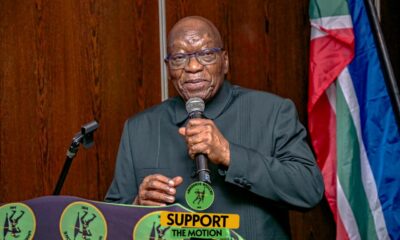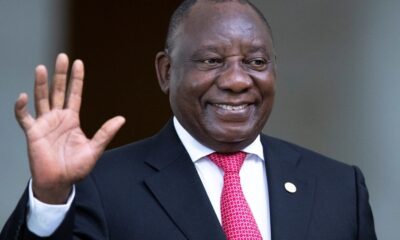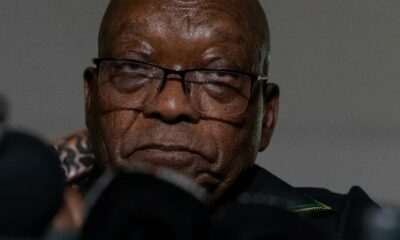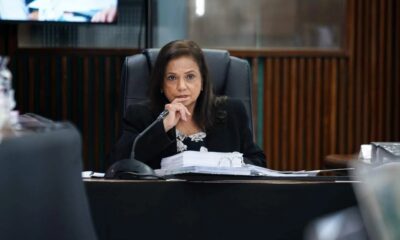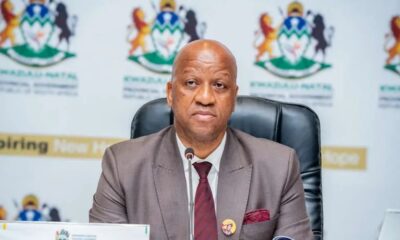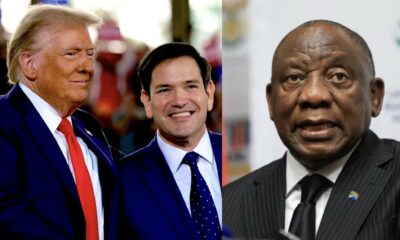News
MK Party vs Ramaphosa: Constitutional Clash Over Power, Policing and Political Pressure
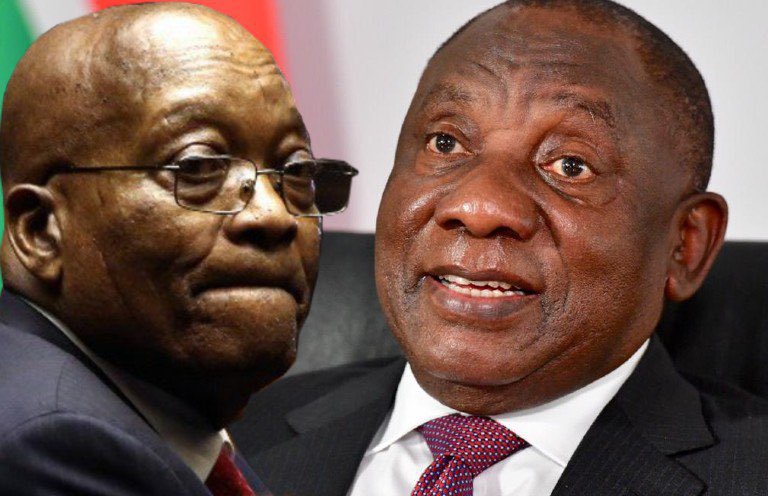
High-stakes court showdown could redefine presidential authority amid explosive criminal allegations
In what’s shaping up to be one of the most consequential legal showdowns of the year, the MK Party is dragging President Cyril Ramaphosa before the Constitutional Court this week. The fight? A battle over whether the president overstepped his constitutional authority when he placed Police Minister Senzo Mchunu on special leave and appointed a judicial commission to investigate shocking claims of corruption in South Africa’s justice system.
At the centre of the storm is Lt-Gen. Nhlanhla Mkhwanazi, KwaZulu-Natal’s provincial police commissioner, whose recent revelations sent shockwaves through the country. In a bombshell statement earlier this month, Mkhwanazi alleged that senior figures in law enforcement, the intelligence services, and even the judiciary were involved in “orchestrated criminal activities.”
President Ramaphosa’s response was swift: he put Mchunu on special leave and appointed Professor Firoz Cachalia as acting police minister. He also announced a full-blown judicial commission of inquiry, chaired by Acting Deputy Chief Justice Mbuyiseli Madlanga, to get to the bottom of the claims.
But the MK Party wasn’t having it.
A Constitutional Tug-of-War
The party, led by figures close to former president Jacob Zuma, filed an urgent application with the Constitutional Court, calling Ramaphosa’s actions “unlawful and unconstitutional.” Specifically, they argue that:
-
The president should have dismissed the minister outright if misconduct was suspected, not simply placed him on leave.
-
The establishment of a judicial inquiry bypassed proper constitutional procedures, lacking both public consultation and parliamentary oversight.
-
Appointing an acting minister without parliamentary input undermines executive accountability.
“The president cannot act unilaterally when the integrity of core democratic institutions is at stake,” said a legal spokesperson for the MK Party.
On Friday, the Constitutional Court instructed the MK Party to submit their arguments by Sunday at 2pm, while the president and other respondents were given until Monday to respond.
Ramaphosa’s Move: Crisis Control or Power Play?
While critics accuse Ramaphosa of consolidating power, the presidency insists the moves were about protecting the integrity of the justice system while serious allegations are examined.
“The judicial inquiry is necessary to restore public confidence,” said a statement from the Presidency. “The decision to place the minister on leave was not a judgment of guilt, but a responsible step while the investigation proceeds.”
Still, public reaction has been split. On social media, many South Africans are applauding Ramaphosa for taking decisive action, particularly in a country where senior officials often remain in office while under investigation.
“Let the law take its course. For once, someone acted like a leader,” one Twitter user posted.
Others, however, worry that bypassing formal channels, particularly Parliament, sets a dangerous precedent.
“If the president can just form a commission every time there’s heat, who checks that power?” asked political analyst Thandeka Mbatha on X.
A Courtroom That Could Redefine Presidential Powers
Legal scholars and political commentators agree: this case could set a major precedent for how South Africa’s executive authority is interpreted during moments of political crisis.
Does the president have free rein to manage his Cabinet during scandals? Or are there constitutional limits that require broader accountability?
“This case touches the very architecture of our democracy,” said Professor Sipho Dlamini, a constitutional law expert at Wits. “The court must weigh the president’s duty to maintain law and order against the constitutional requirement for transparent and accountable governance.”
Bigger Than Mchunu
The implications stretch far beyond the Police Minister’s career. If the MK Party succeeds, it could curb the president’s ability to act quickly during moments of institutional crisis. If the court sides with Ramaphosa, it could embolden future presidents to bypass standard checks and balances in the name of expediency.
And in a post-election climate still thick with tension and mistrust, the verdict , expected in the coming weeks will likely ripple through every level of governance.
Until then, all eyes remain on the Constitutional Court, where South Africa’s political and legal futures continue to collide.
{Source: IOL}
Follow Joburg ETC on Facebook, Twitter , TikTok and Instagram
For more News in Johannesburg, visit joburgetc.com

